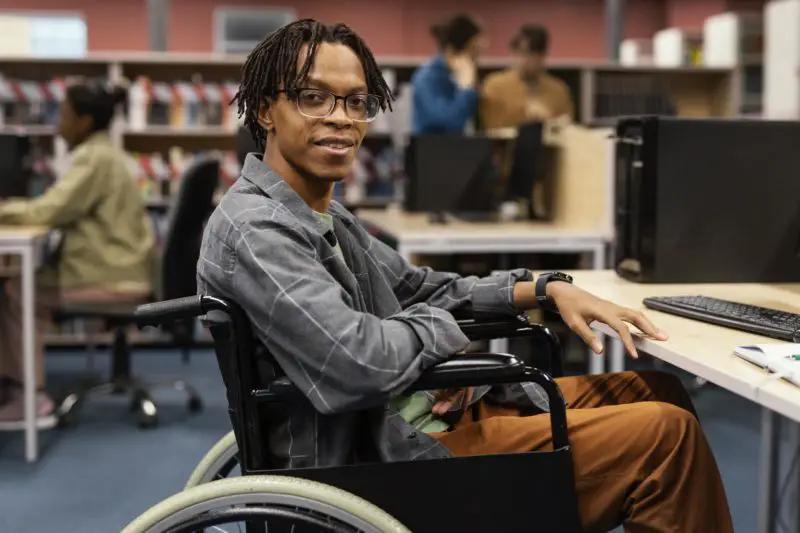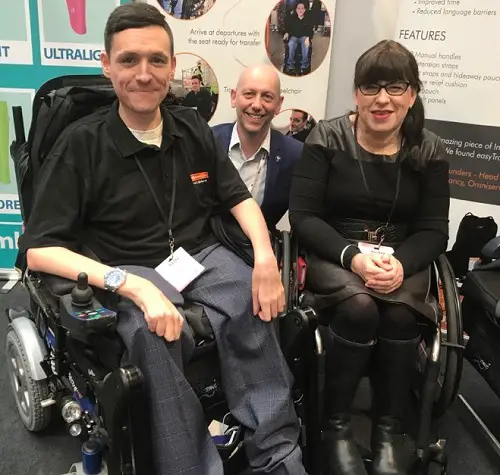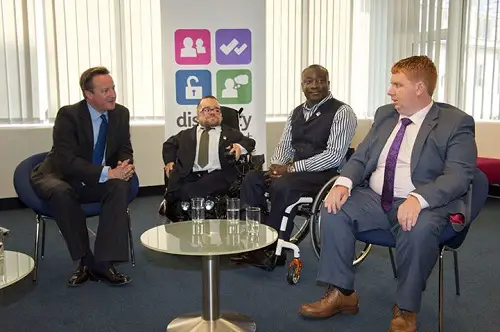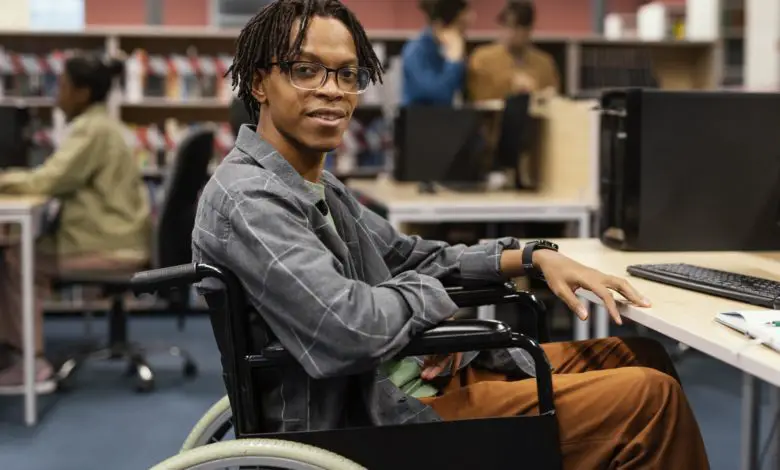Starting a Business When You Have a Disability – Easy Read Guide
EasyRead Guide for Disabled Entrepreneurs
This guide is for disabled people who want to start a business or grow a small business.
We use EasyRead words, short sentences, and clear tips to help you understand everything.
How to Use This Guide
This guide is written in a very easy-to-read style.
We use:
- Short sentences
- Simple everyday words
- Clear headings and bullet points
- Explanations for difficult ideas
We made it this way so that more people can understand it—especially those with learning disabilities, reading difficulties, or anyone who prefers clear, simple language.
Our goal is to make important business information easier for everyone to access.
Whether you’re just starting out or already running a business, this guide is here to help you grow, with tips that are easy to follow and act on.
What This Guide Will Help You Do
This guide is for disabled people who want to start their own business.
You will learn:
- Why many disabled people choose to work for themselves
- The problems they may face
- Ways to solve these problems
- Where to get help and training
- How to grow a business in a way that helps everyone
Running a business can give you freedom. You can make your own choices. You can work in a way that suits your needs.
Why Disabled People Are Starting Their Own Businesses

Starting a business is a good choice for many disabled people.
Here’s why:
- They can set their own hours
- They can work from home
- They can make workplaces that meet their needs
- They can use their life experience to help others
For example, a person who uses a wheelchair might start a business selling tools that make homes more accessible. They know what really helps—because they live it every day.
Disabled people bring new ideas to the business world. These ideas can help not just other disabled people, but everyone.
This is called inclusive design. It means making things that work well for all people. For example, a ramp helps people in wheelchairs—but also parents with strollers (push chairs) and workers carrying boxes.
Inclusive businesses often grow faster and serve more people.
Real Challenges Disabled Business Owners Face

Running a business is not always easy. Disabled business owners face some special challenges. These can include:
1. Getting Money
Banks and lenders may not understand your needs. Some disabled people are told “no” when asking for a loan.
What helps: Look for special programs that offer money to disabled business owners. Some groups give small loans with better rules.
2. Going to Events
Networking events (where people meet and share ideas) are not always accessible. For example, there may be stairs but no lift. Or there may be no sign language support.
What helps: Ask event organisers about access before going. Some business groups are now hosting inclusive events.
3. Talking with Customers
Sometimes, it’s hard to communicate with clients or suppliers. Maybe you use a screen reader or speak with a device.
What helps: Let people know your preferred way to talk—by email, video, or phone. Be clear about your needs from the start.
4. Extra Costs
You might need special tools to run your business. These could be expensive, like voice-to-text software or special desks.
What helps: Look for grants or funds that help pay for adaptive tools and equipment.
5. People’s Attitudes
Some people wrongly think disabled people cannot run businesses.
What helps: Share your story and your skills. Build a strong brand that shows what you do well. Let your work speak for itself.
Smart Solutions That Are Working
Disabled business owners are doing amazing things to solve these problems. Here are some ways they are making it work:
- They use personalised business signage to make their shops or offices easier to find.
- They use clear, bold signs to help people understand what their business does.
- They create websites that work well with screen readers and have large, easy-to-read text.
- They train their staff to welcome people with all kinds of needs.
By doing these things, they are not just helping disabled customers—they are helping everyone.
Building Better Teams

Some disabled business owners are changing how they hire people. They choose to:
- Hire staff with different life experiences
- Create jobs that offer flexible hours and remote work
- Build teams that are kind, open, and welcoming
This creates a workplace where more people feel safe and included. It also makes the team stronger because everyone brings something different.
Where to Get Help and Support
If you want to start a business, you don’t have to do it alone. There is help out there!
Here are some great supports:
💡 Equipment and Tools
You can use assistive technology like:
- Screen readers
- Voice-activated devices
- Tools that help with mobility, reading, or typing
These tools can make it easier to do your job every day.
💰 Money and Loans
Some financing programs understand disability needs. Some even give extra time to repay money.
Ask local business groups or government offices about support for disabled business owners.
📚 Learning and Training
There are special classes and online programs that teach you how to:
- Start and grow a business
- Manage your time
- Make your services more accessible
Many of these classes use simple language or come with subtitles, audio, or picture guides.
🤝 Mentors and Business Coaches
Mentors are people who have done this before. They can help you:
- Plan your steps
- Solve problems
- Stay motivated
You can also join peer-led groups where disabled business owners share tips and ideas.
Inclusive Business = Stronger Business
🖼️ Image suggestion: A shop where the door has a ramp, large signs, and staff offering help.
A good business is a business that works for everyone.
This means making sure your shop, website, and services are easy for all people to use.
Here’s how to do that:
- Use ramps, wide doorways, and clear signs in your shop
- Make your website screen-reader friendly
- Allow different ways for people to contact you (email, phone, text)
- Ask customers what they need—then listen
- Work with groups that support disabled people
This is not just the right thing to do. It also helps your business grow. More people can use your services, and more people will want to support your business.
To Do:
Review your business every few months. Ask yourself:
“Is this working for everyone?”
If not, what can you change?
Final Thoughts: You Have What It Takes
Being a disabled business owner is not always easy. But you bring something special: real-life experience, strength, and creativity.
Here’s what we know:
- Disabled people are great problem-solvers
- They are already running over 1.8 million businesses in the U.S.
- They are more likely to start their own business than others
You have the power to build something amazing. And you don’t have to do it alone. With help, training, and support—you can grow a business that changes lives.
About the Writer
About the Writer – Duncan Edwards
I help disabled people start and grow their own businesses.
I have worked on many projects to make things more accessible. That means making things easier for everyone to use.
I run the Disability Horizons Shop. It sells helpful products made by disabled people.
I also give advice and support to people who want to make their own products or start a business.

